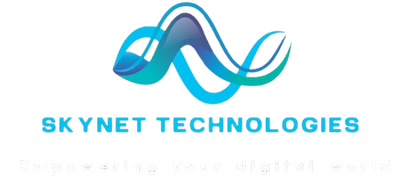Saloon Management System

Key Features of a Pharmacy Management System
-
Inventory Management: Tracks stock levels, manages reordering, and prevents stockouts.
-
Prescription Processing: Facilitates the handling of prescriptions, including electronic prescriptions, and ensures accurate dispensing.
-
Sales Management: Processes sales transactions, generates invoices, and manages payments.
-
Patient Record Management: Stores and manages patient information, including medical history and prescription details.
-
Reporting and Analytics: Generates reports on sales, inventory, and other key performance indicators (KPIs) to support data-driven decision-making.
-
Regulatory Compliance: Helps pharmacies adhere to industry regulations and standards.
-
Supplier Management: Manages relationships with suppliers, tracks orders, and facilitates procurement.
-
Security: Implements security measures to protect sensitive patient data and prevent unauthorized access.
Benefits of using a Pharmacy Management System:
-
Increased Efficiency: Automation of tasks like prescription processing, inventory management, and billing saves time and resources.
-
Reduced Errors: Minimizes manual errors associated with paper-based systems, leading to safer medication dispensing.
-
Improved Patient Care: Enables better medication management, personalized care, and informed decision-making.
-
Better Inventory Control: Optimizes stock levels, reduces waste, and prevents stockouts.
-
Enhanced Regulatory Compliance: Ensures adherence to industry regulations and standards, minimizing legal risks.
-
Cost Savings: Reduces operational costs through increased efficiency and reduced errors.
-
Improved Business Insights: Provides data-driven insights through reporting and analytics, enabling better decision-making.
Key Features:
Appointment Scheduling:
Allows clients to book, reschedule, or cancel appointments online or through the salon, reducing no-shows and optimizing appointment calendars.
Customer Relationship Management (CRM):
Tracks customer information, preferences, purchase history, and communication, enabling personalized service and targeted marketing campaigns.
Inventory Management:
Monitors product stock levels, automates reordering, and helps prevent stockouts, optimizing inventory control.
Point of Sale (POS):
Facilitates secure and efficient payment processing, generates invoices, and handles transactions.
Employee Management:
Tracks employee schedules, performance, and payroll, streamlining staff management and improving communication.
Reporting and Analytics:
Provides insights into salon performance through data analysis, helping identify areas for improvement and optimize business strategies.
Marketing and Promotions:
Enables targeted marketing campaigns, loyalty programs, and promotional offers to attract new clients and retain existing ones.
Online Presence:
Often includes a website or app for online booking and client communication, enhancing accessibility and convenience.
Benefits:
Increased Efficiency:
Automation of routine tasks frees up staff to focus on client service and other value-added activities.
Improved Client Experience:
Streamlined booking, personalized service, and efficient communication enhance client satisfaction and loyalty.
Reduced Costs:
Optimized inventory management, reduced no-shows, and improved staff utilization lead to cost savings.
Enhanced Revenue:
Targeted marketing, improved client retention, and efficient operations contribute to increased revenue generation.
Better Decision-Making:
Data-driven insights from reports and analytics enable salon owners and managers to make informed decisions.
Streamlined Operations:
Centralized management of all salon activities simplifies operations and reduces administrative burden.
In essence, a salon management system is a comprehensive solution designed to optimize all aspects of a salon's operations, leading to increased efficiency, improved client experience, and enhanced profitability.




